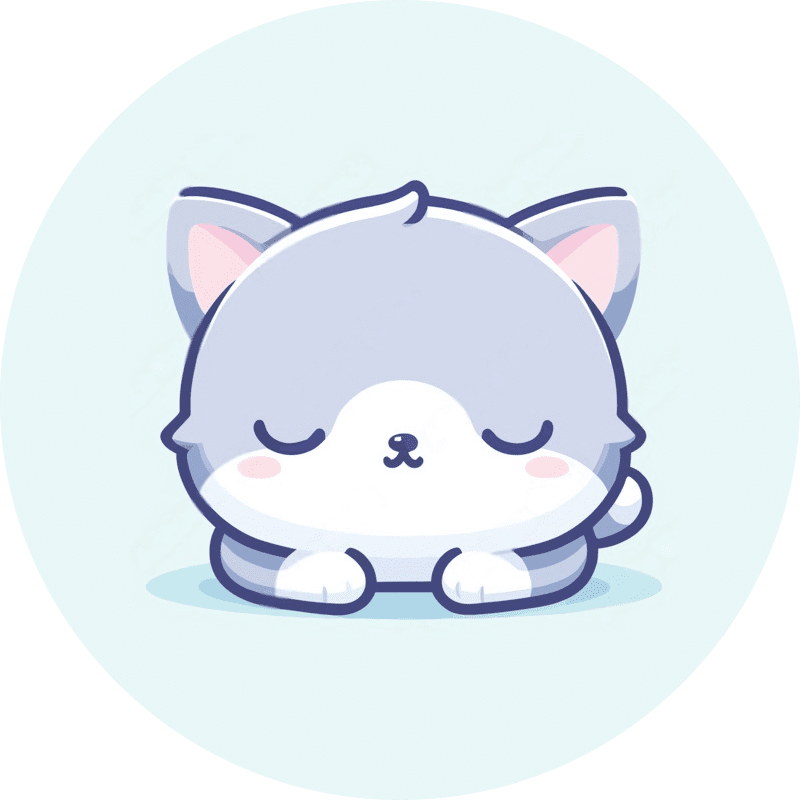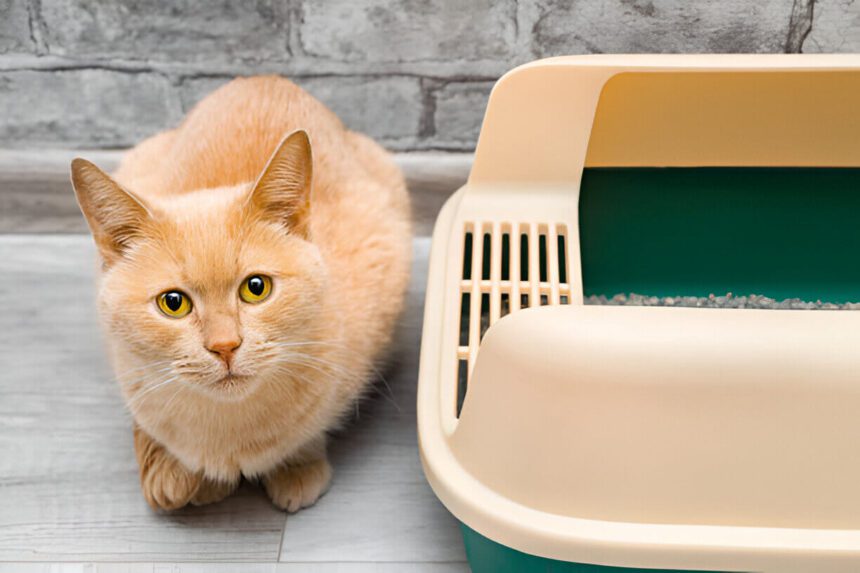Ever notice how your cat bolts to the litter box the moment they finish eating, like clockwork? It’s almost as if their kibble came with a speedy delivery guarantee to their digestive system. Weird, right? But don’t worry—this behavior isn’t just your cat being quirky (though we know cats are masters of that!).
In fact, pooping right after a meal is a surprisingly common phenomenon, tied to your cat’s biology, instincts, and sometimes even their emotional state. It’s called the gastrocolic reflex, and it’s the same mechanism that explains why humans often feel the urge after a big meal, too. Cats, however, have their own unique spin on it—because, well, they’re cats!
So, why your cat poops right after eating? What’s really going on inside that fluffy little body? Is it normal? And could it be a sign of something more? Let’s dive into the science, instincts, and quirks behind your cat’s post-meal dash to the litter box.
Is It Normal for a Cat to Poop After Eating?
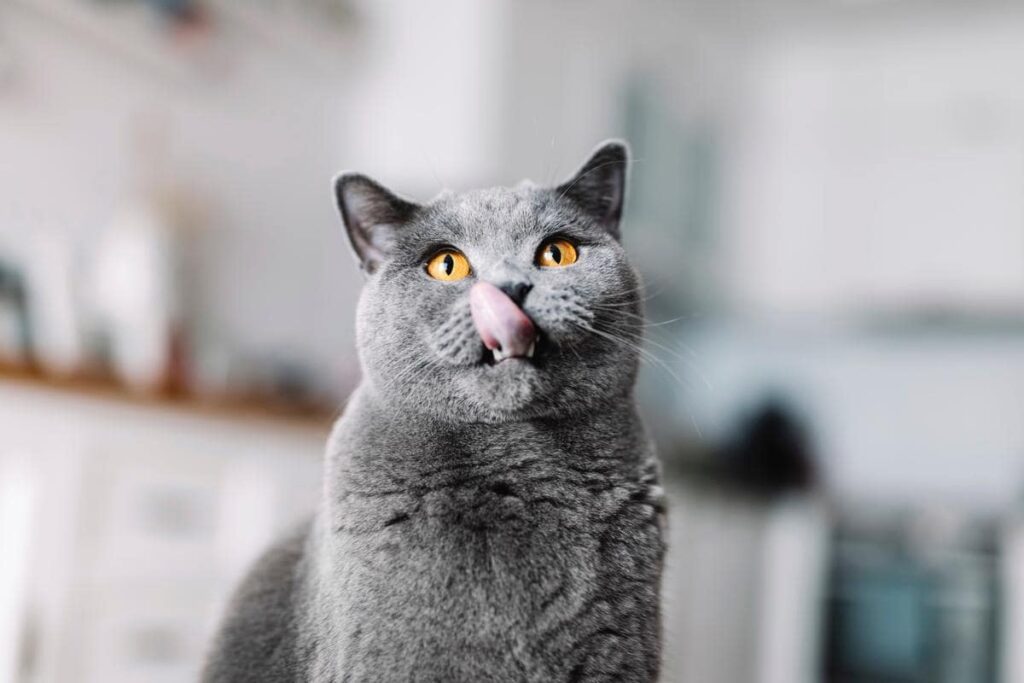
Short answer? Yup, totally. Long answer? Well, cats have this thing called the gastrocolic reflex. Fancy term, right? Basically, it’s like an automated system in their body. When food enters their stomach, it sends a signal to their intestines to make room. So, out goes the old stuff (you know what I mean) to make way for the new.
Now, not every cat does this. Some have chill digestive systems that take their sweet time. Others? It’s like clockwork. If your cat seems happy, healthy, and their poop looks normal, this behavior is nothing to freak out about.
How Long After Eating Do Cats Poop?

Let’s tackle this one head-on because it’s a common question for cat owners. How soon a cat poops after eating can vary depending on factors like age, diet, and digestive health.
Most cats will poop anywhere between 6 to 12 hours after eating, but some may go sooner, especially if they have a more active gastrocolic reflex.
Purina Pro Plan Veterinary Diets FortiFlora Probiotic
How Long After Eating Does a Kitten Poop?
Kittens are digestion machines! Their tiny bodies process food much faster than adult cats. Typically, kittens may poop 4 to 6 hours after eating, and they tend to poop more frequently throughout the day. If you’re caring for a kitten, be prepared for plenty of litter box action.
Why Does Your Cat Poop So Often?

Alright, let’s break this down. There are a bunch of reasons your kitty might be hitting the litter box more than usual:
Diet Drama
Ever check out what’s in your cat’s food? Low-quality stuff packed with fillers will zip through their system faster than a zoomie session at 3 a.m. On the flip side, high-quality food with better ingredients gets absorbed more efficiently, meaning less waste.
Hill’s Science Diet Sensitive Stomach & Skin
If you’ve recently switched foods and noticed a change, this might be your culprit. Cats have sensitive tummies, so any sudden diet shake-ups can mess with their digestive flow.
Kitten Energy
Kittens are tiny eating (and pooping) machines. Their little metabolisms work overtime, so don’t be surprised if your baby furball poops multiple times a day. This tends to settle down as they grow.
Older Cat Vibes
Older cats, though? They’re often on the other end of the spectrum. Age can slow things down, whether it’s their metabolism or the actual act of pooping (arthritis, anyone?). If you’ve got a senior cat who’s pooping less or seems uncomfortable, it’s worth chatting with your vet.
Hydration Station
Cats and water. A love-hate relationship, right? Dehydration can lead to hard, dry poops that are tough to pass.
Blue Buffalo Wilderness High Protein Wet Cat Food
Cats who mostly eat kibble are at a higher risk since dry food doesn’t have much moisture. Wet food or a fancy pet fountain can work wonders here.
The Activity Factor
Lazy cats (aka 90% of cats) might poop less. Why? Exercise helps keep their digestive systems moving. So, a little extra playtime with a wand toy or laser pointer might actually help them poop more regularly. Who knew?
What Does “Healthy” Cat Poop Look Like?
Okay, let’s get real here. The state of your cat’s poop says a lot about their health. Here’s what you wanna see:
- Firm but not rock-solid
- A nice brown color (not too dark, not too light)
- Mild smell (I mean, it’s poop, so it won’t smell like roses)
PetSafe ScoopFree Automatic Litter Box
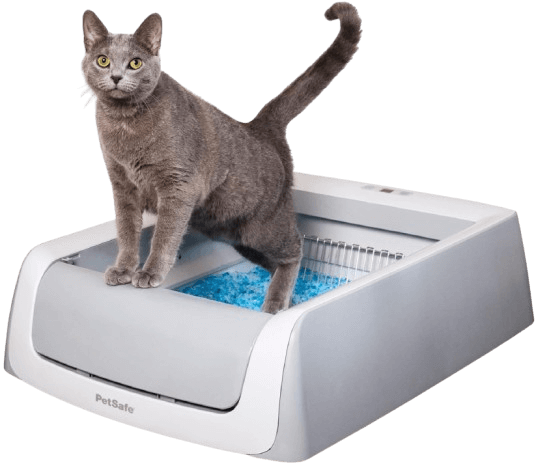
If the poop checks those boxes, you’re golden. But if it’s runny, super smelly, or looks weird? That’s your cue to keep reading.
What Does Weird Poop Mean?
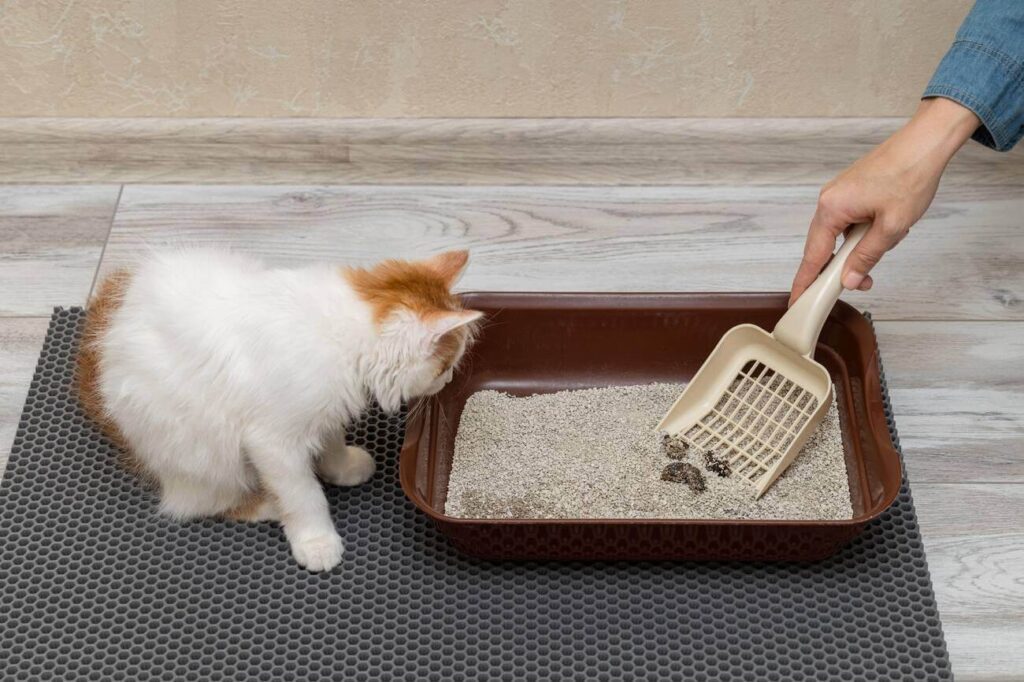
Cat poop isn’t just poop—it’s like a little health report. Here’s a quick color-coded guide to what your cat might be trying to tell you:
Red
Fresh blood? Not good. Could be something minor, like irritation, but also might point to a bigger issue. Keep an eye on it.
Black
Dark, tarry poop usually means digested blood. That’s a sign of trouble further up in the digestive system. Time for a vet visit.
Yellow or Orange
Could be liver-related. Definitely not a color to ignore.
Green
Might be dietary (if they’ve been munching on plants) or a sign of gallbladder problems.
White
Super pale poop can mean pancreatic issues. And if you spot white bits? Worms might be the culprit.
Is It a Problem If Your Cat Poops Right After Eating?
Most of the time, it’s just their natural rhythm. But sometimes, frequent pooping can signal something’s off. Here’s what to look out for:
- Diarrhea: Runny, watery poop isn’t normal. It could be stress, diet, or something more serious like parasites.
- Straining: If your cat seems to be working extra hard to poop, that’s a red flag.
- Changes in Appetite: Eating less (or more) than usual? That can be linked to digestive issues.
- Weight Loss: Pooping a lot and losing weight? That’s a vet call, for sure.
Dr. Elsey’s Premium Clumping Cat Litter
How to Help Your Cat Have Healthy Poops
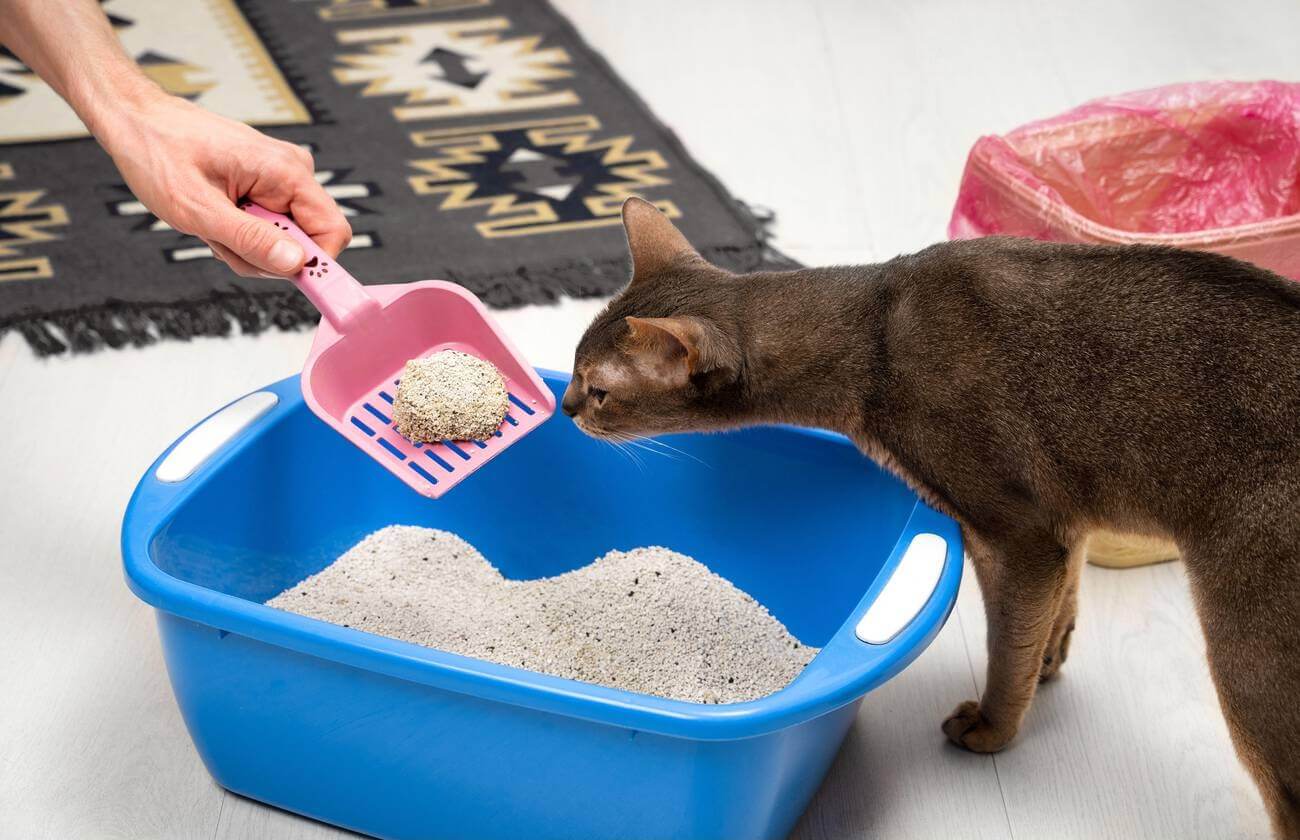
Because let’s face it, no one wants to deal with poop problems. Here’s how to keep things running smoothly:
Feed High-Quality Food
Invest in good food. Your cat (and their litter box) will thank you. Look for brands that skip the fillers and focus on real meat and nutrients.
Hydrate, Hydrate, Hydrate
If your cat’s not a big water drinker, try adding a bit of water to their wet food or using a water fountain.
Veken 95oz/2.8L Automatic Cat Water Fountain
Stick to a Routine
Cats are creatures of habit. Feeding them at the same times every day can help regulate their digestion.
Arm & Hammer Cat Litter Deodorizer
Playtime Is Key
Get your cat moving. It’s good for their body and their bowels.
Catstages Tower of Tracks Cat Toy
When to See the Vet
If your cat’s post-meal poop habit comes with any of these, don’t wait:
- Blood in Stool
- Vomiting
- Loss of Appetite
- Extreme Weight Loss
- Lethargy
Signs Your Cat Needs to Poop
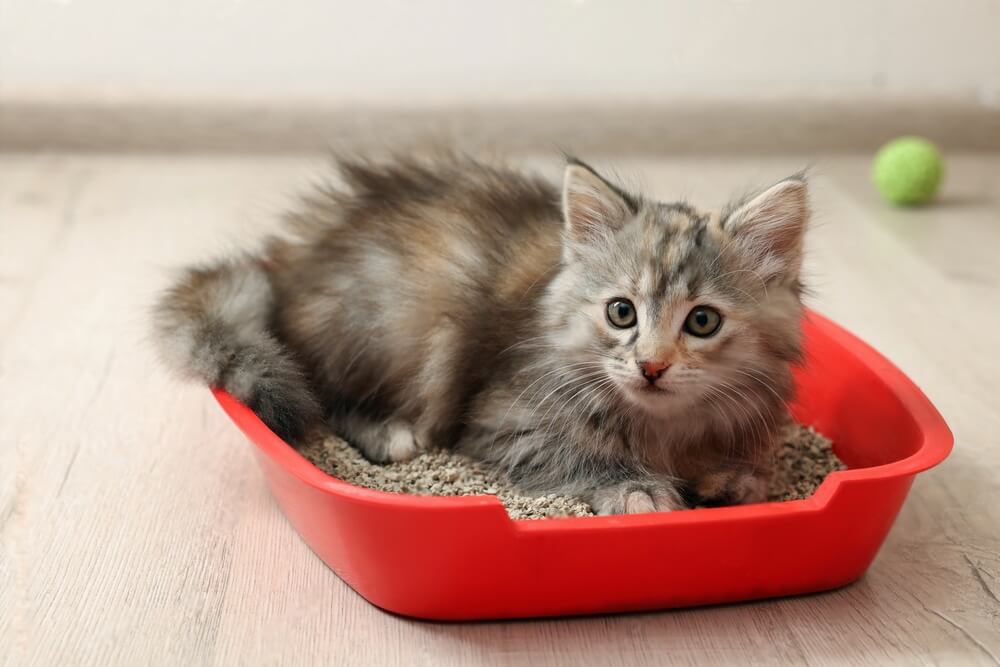
Cats are pretty subtle, but they do give some signals when it’s time to go. Look for these signs:
Sniffing or Exploring: If your cat is suddenly interested in hidden corners or under furniture, they might be searching for a “bathroom.”
Tail Position: A tail standing straight up or twitching can indicate that nature’s calling.
Scratching: Cats often scratch around their litter box or on nearby surfaces when they’re preparing to poop.
Restlessness: Pacing or wandering aimlessly can signal that they’re looking for a spot.
Jonny Cat Heavy Duty Litter Box Liners
Helping a Reluctant Cat Poop
If your cat hasn’t pooped in over 24 hours, here’s what you can do to help:
- Add Moisture: Wet food can work wonders for digestion. Its higher water content helps keep stools soft.
- Pumpkin Power: A spoonful of plain, unsweetened pumpkin is a safe, natural way to boost fiber and get things moving.
- Probiotics: Consider introducing a small amount of plain Greek yogurt or cat-specific probiotics to improve gut health.
- Gentle Massage: Lightly rubbing your cat’s lower back in a circular motion can mimic the way a mother cat stimulates kittens.
Rocco & Roxie Professional Strength Stain & Odor Eliminator
What About Cats That Poop Less Frequently?
Not all cats are the same. While most cats poop daily, some might only go every other day. As long as they’re not straining or showing discomfort, this is usually fine. However, if your cat hasn’t pooped for more than two days or appears to be in pain, it’s time to consult a vet.
Common Pooping Problems and Solutions
Constipation
- Symptoms: Straining, hard stools, discomfort.
- Solutions: Hydration is key! Add wet food or increase fiber intake. Regular vet check-ups are also essential.
Diarrhea
- Symptoms: Watery stools, increased frequency, possible lethargy.
- Solutions: Keep your cat hydrated and consider a bland diet of plain chicken and rice. Contact your vet if it persists.
Weird Poop Issues
- Maggots in Poop: This is a sign of parasites. A trip to the vet is necessary.
- Poop Zoomies: Some cats get a burst of energy after pooping—this is normal and often just a release of relief!
Can Cats Hold Their Poop?
Yes, cats can hold their poop, but it’s not healthy for them to do so regularly. Stress, changes in environment, or an unclean litter box can cause a cat to delay pooping. If your cat holds it in often, they may develop constipation or other digestive problems.
Do Cats Eat Poop?
While it’s rare, some cats may eat poop. This behavior, called coprophagia, can happen due to dietary deficiencies, curiosity, or boredom. If you notice this, consult your vet to rule out any underlying health issues.
How Long Can Cats Go Without Pooping Before It’s an Emergency?
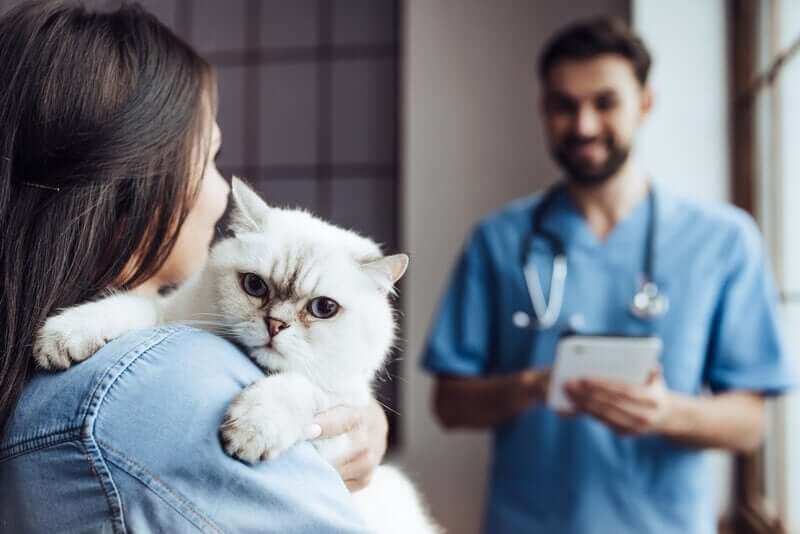
If your cat hasn’t pooped in over 48 hours, it’s considered a medical emergency. Prolonged constipation can lead to obstipation, where stool becomes so dry and hard that it’s almost impossible for the cat to pass it naturally. If you notice your cat straining or showing discomfort, consult a vet immediately.
How Long Can Cats Go Without Peeing?
Cats typically urinate every 8-12 hours, depending on hydration and diet. If your cat hasn’t peed in over 24 hours, it could signal serious conditions like kidney disease, a bladder obstruction, or severe dehydration. Don’t wait—get them to a vet quickly.
What Does It Mean If a Cat Eats but Doesn’t Poop?
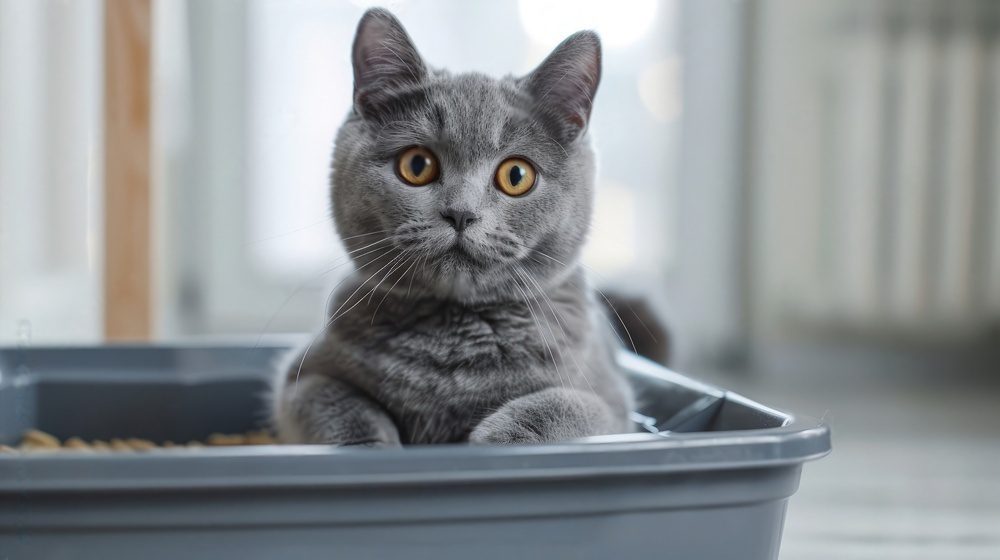
If your cat is eating normally but not pooping, something might be blocking their digestive process. Common culprits include:
- Stress or environmental changes.
- Dietary imbalances, such as low fiber.
- Intestinal blockages or other medical issues.
It’s best to visit the vet to rule out serious conditions like inflammatory bowel disease or intestinal obstruction.
Do Cats Get Constipated?
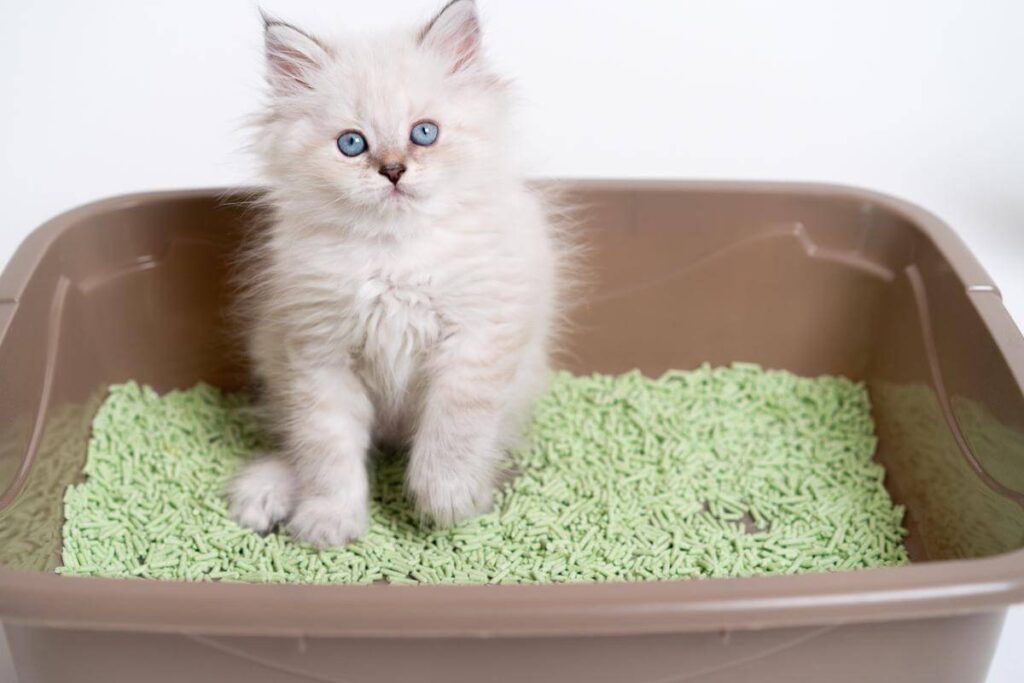
Yes, cats can get constipated. Common causes include:
- Inadequate water intake.
- Stress or anxiety.
- A diet low in fiber.
- Certain medications or illnesses.
Symptoms:
- Straining in the litter box.
- Small, hard stools.
- Infrequent bowel movements.
Solutions:
- Offer wet food for hydration.
- Add fiber, like a teaspoon of canned pumpkin.
- If it persists, consult your vet.
How Long Does It Take for Cats to Poop After Eating?
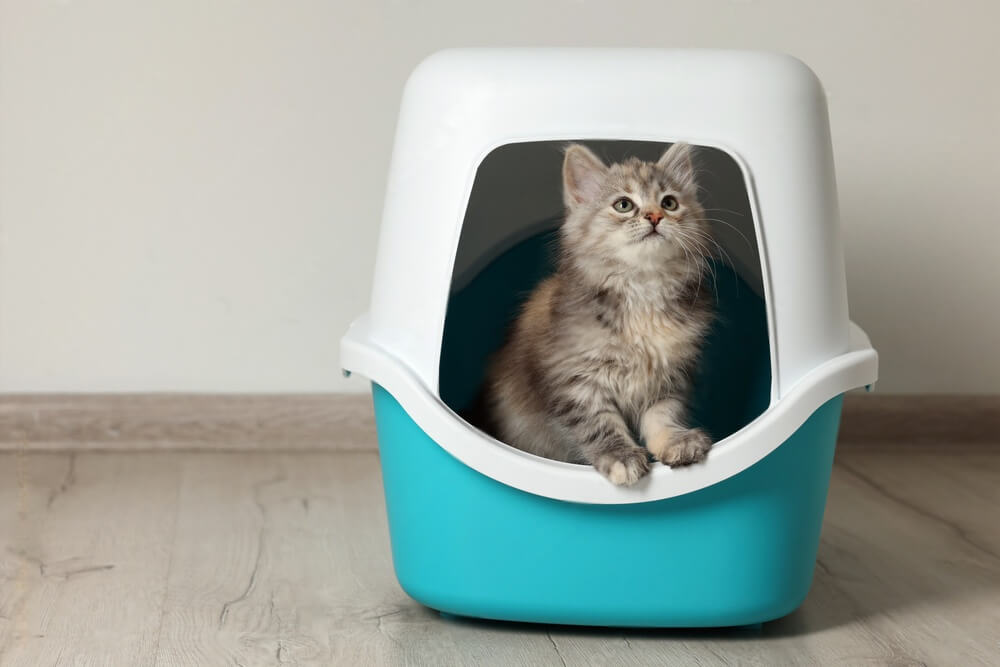
For an average healthy cat, digestion typically takes 12–24 hours to fully process food through their system. However, the initial trigger to poop (thanks to the gastrocolic reflex) can happen much sooner.
Factors that affect how long it takes for a cat to poop include:
- Age: Kittens digest faster than adult cats.
- Diet: High-fiber diets may speed things up, while low-quality food with fillers can slow digestion.
- Health: Parasites, infections, or digestive disorders may alter timing.
My Senior Cat Is Pooping Less Often—Is That Normal?
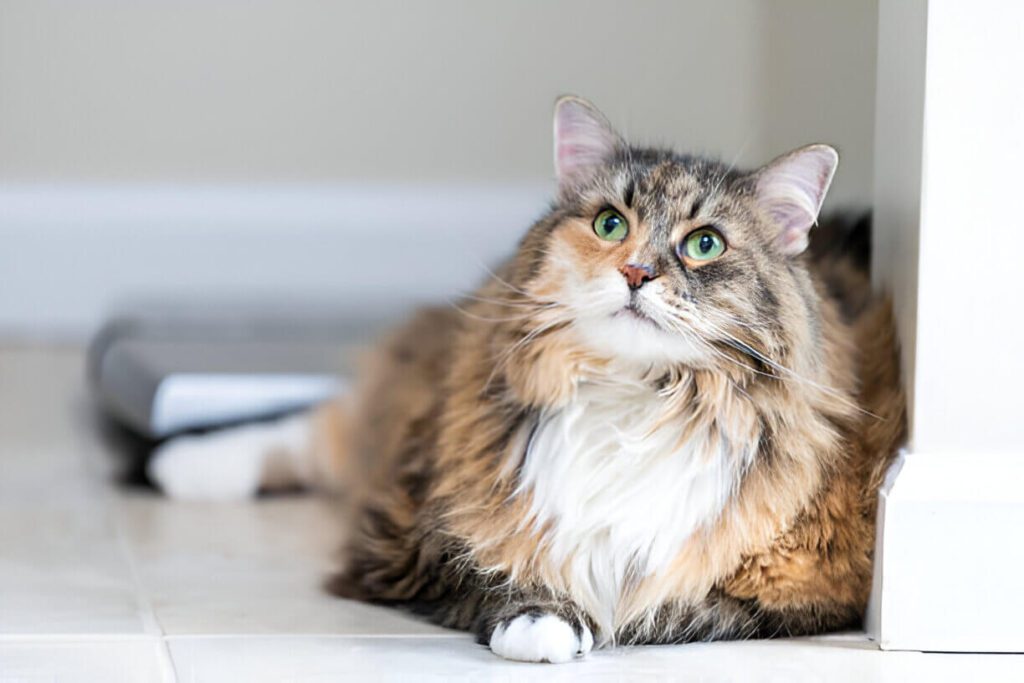
Senior cats (10+ years) often experience slower digestion. If your older cat seems comfortable and their poop is still well-formed, pooping every 2-3 days may be fine. However, to support gut health:
- Keep them hydrated.
- Maintain moderate activity levels.
- Consult a vet if there are signs of pain or blockage.
Why Does My Cat Sometimes Eat Their Poop?
Eating poop (coprophagy) is rare in cats but can happen. Possible reasons:
- Nutritional deficiencies.
- Curiosity or boredom.
- Stress or anxiety.
- Underlying medical issues.
Solutions:
- Keep the litter box clean.
- Ensure your cat has a balanced diet.
- Talk to a vet if it’s persistent.
Can Cats Poop Outside the Litter Box?
Yes, cats may poop outside the box due to:
- Stress or illness.
- Dislike of the litter box’s cleanliness, location, or type of litter.
- Territorial behavior in multi-cat households.
Fixes:
- Clean the litter box regularly.
- Ensure multiple boxes in multi-cat homes.
- Address any potential health issues with a vet.
Can Food Affect How Long After Eating Cats Poop?
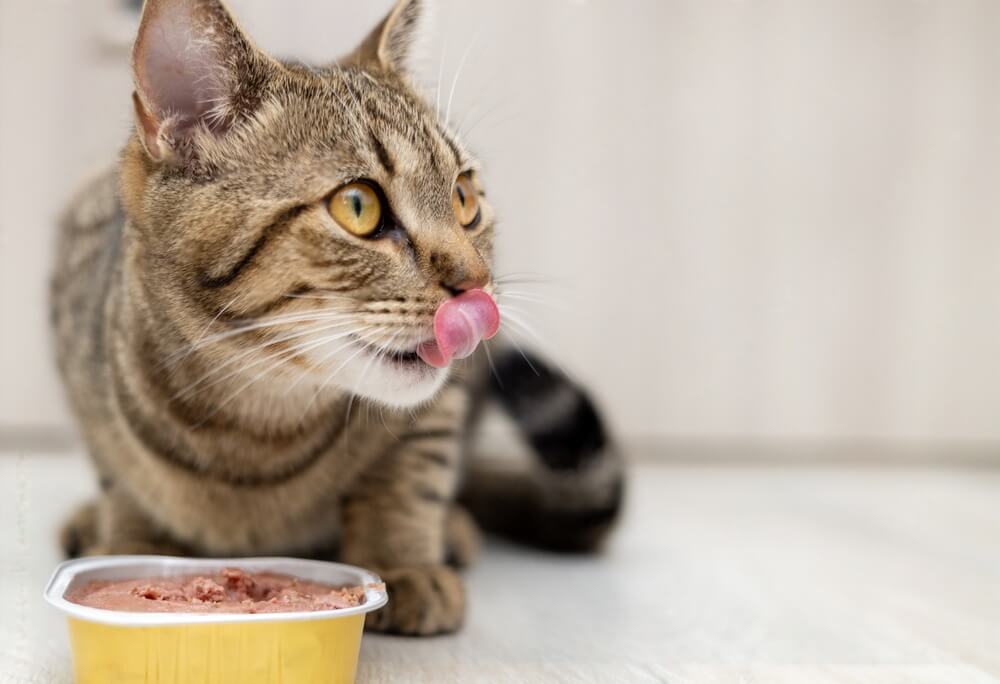
Definitely! Diet plays a big role in how quickly food moves through your cat’s system:
Dry kibble may slow digestion, especially if your cat isn’t drinking enough water.
If you’ve recently changed their diet, give them time to adjust, but watch for unusual delays in pooping.
Wet food tends to digest faster due to higher moisture content.
Dried Poop on Cat’s Bum
Dried poop on a cat’s bum can happen for several reasons:
- Dietary Issues: Low-quality food can result in sticky, hard-to-pass poop.
- Hygiene Problems: Overweight or elderly cats may struggle to groom properly.
- Health Concerns: Diarrhea or soft stools can make a bigger mess.
To prevent this, ensure your cat has a balanced diet, regular grooming, and access to clean water.
How to Get Dried Poop Off a Cat’s Anus
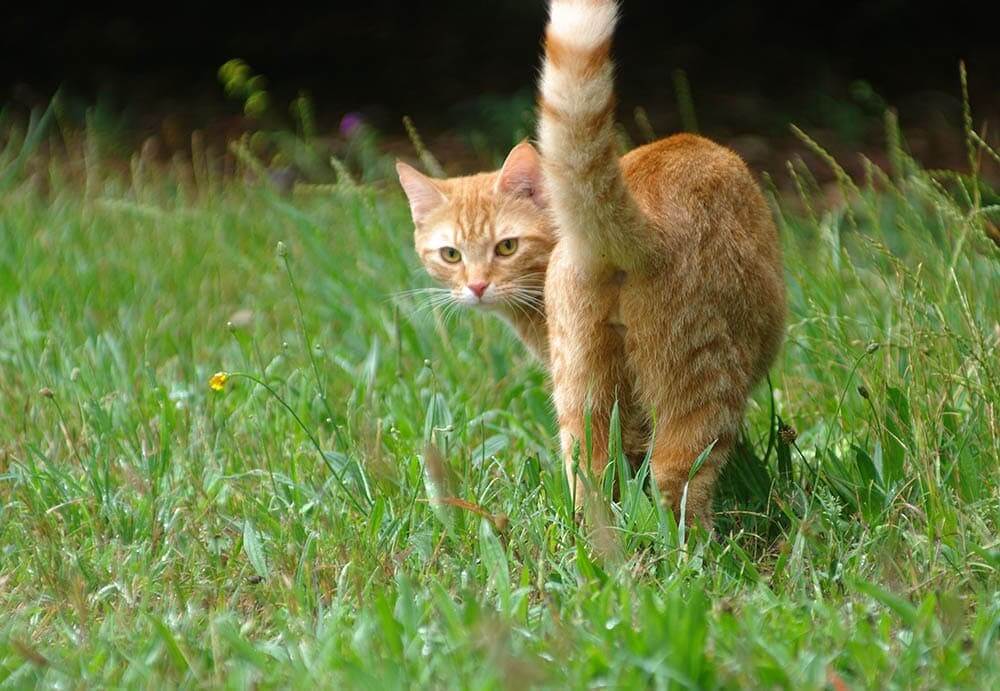
Sometimes cats can end up with dried poop stuck to their bum. It happens, and while it’s not ideal, it’s totally fixable with a little patience and care.
Here’s what you can do:
- Gently Wipe: Use a warm, damp cloth or unscented baby wipe to soften and remove the dried poop.
- Trim the Fur: If your cat has long fur, carefully trim around the area to prevent future messes.
- Bath Time (if needed): Fill a shallow basin with lukewarm water and gently clean the area, making sure to dry your cat thoroughly afterward.
Final Thoughts on “Cat Poops Right After Eating”
At the end of the day, cats are quirky little creatures. Some cats poop right after eating because their body tells them to, and that’s perfectly normal. But as their human, it’s your job to keep an eye on their health, and that includes what’s in the litter box.
So next time your cat does their post-dinner dash to the litter box, you’ll know exactly what’s going on—and when to just laugh it off or take action.
And hey, if you’re still worried, trust your gut (and your vet). Because a happy, healthy cat makes for a happy, less-stressed you.
If you’re exploring why your cat poops right after eating, several reliable sources can provide valuable insights:
Reliable Sources
PetMD: Information on irritable bowel syndrome (IBS) in cats, which can affect their digestive habits.
WebMD: Details on normal and abnormal cat poop, helping you understand your cat’s digestive health.
Tufts Catnip: Insights into chronic constipation in cats and the gastrocolic reflex.
JustAnswer: Expert answers on why a cat might defecate immediately after eating.
